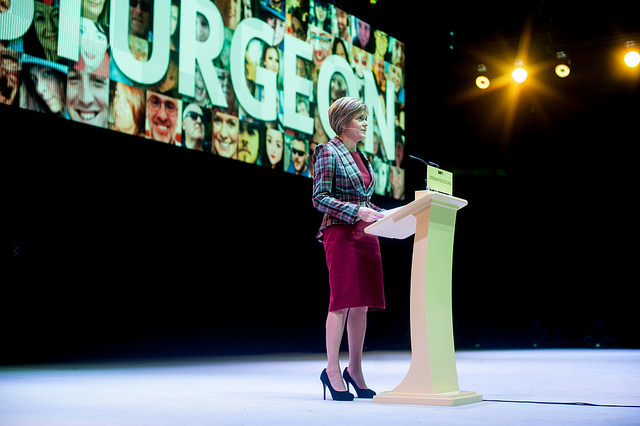
The Loser Takes It All – The SNP after the referendum
If a political party were ever lucky enough to find itself in the SNP’s current position in Scotland, but across the entire United Kingdom, it would be heading towards the biggest landslide in British political history. The Nationalists are predicted to win around 45 per cent of the Scottish vote, giving them between 71 and 91 per cent of Scotland’s MPs.
The SNP offer candidates in only 9 per cent of Westminster constituencies yet are currently the British political party most certain of playing a role in the formation of the next government. The party’s current success comes against a backdrop of winning only 6 MPs in 2010, having as little popularity as the widely-loathed Scottish Conservatives as recently as 2013 and, in September of last year, leading a losing referendum campaign that forced a change in party leadership.
However, it is the referendum question that is now benefiting the SNP. The referendum campaign greatly increased support for independence, which is highly correlated with SNP voting in the General Election, as well as further dividing the Scottish party system, which was already split by attitudes towards independence. The closeness of the campaign has not extinguished hope amongst ‘yes’ voting Scots that independence remains a realistic possibility. Indeed, supporters of the SNP have become ever more fervent in their partisanship since September’s referendum.










